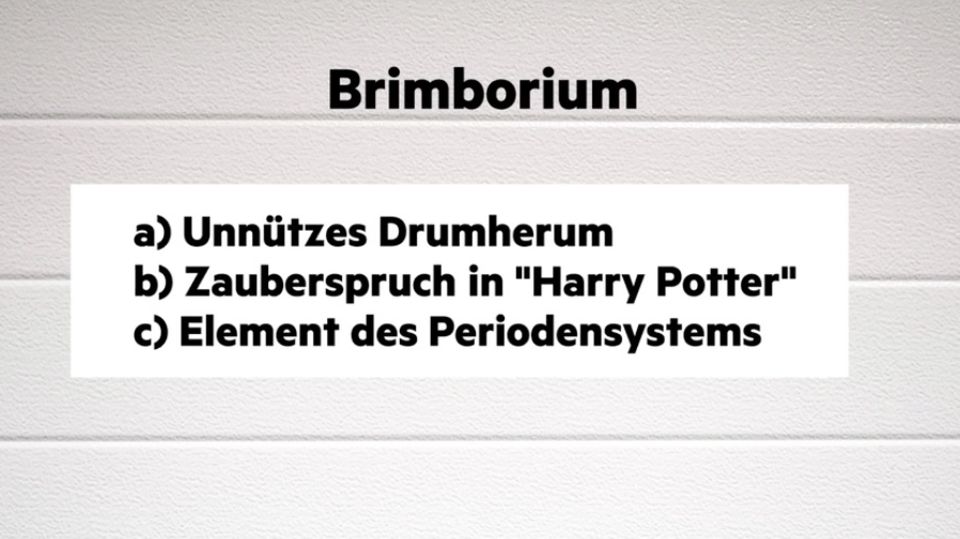Mother Language Day
“Language talent has nothing to do with intelligence”: Linguist dispels myths about multilingualism
A study shows that if language loss continues at the current rate, then in 40 years at least one language will be lost per month
© Angelina Bambina/Getty Images
What is my native language? A question that is often not easy to answer for multilingual people. A linguist explains what mother tongue has to do with mother, why language talent is not related to intelligence and why more and more languages are disappearing.
International Day takes place on February 21st every year native language instead. With this day, UNESCO would like to draw attention to the progressive disappearance of languages and at the same time promote linguistic diversity. People around me are always confused about what my mother tongue is. I grew up multilingual: my parents taught me Farsi (the official language of Iran) and German. I learned English and French at school, and later Spanish at university. So I speak – more or less well – five languages. But what makes a language a “native language”?
Is native language the language I learned first? Or the one in which I think and dream? Or maybe my mother’s first language? And can you actually have multiple native languages?
Just a few days after birth, children can distinguish their native language from other languages
The Duden defines mother tongue as “the language that a person learns as a child (from their parents). [und primär im Sprachgebrauch] However, this definition doesn’t give me any clarity. So I talk to the linguist and author Prof. Dr. Dr. hc Jürgen Meisel.
The fact that German, English and many other languages talk about “mother tongue” is linked to the traditional social role of the mother, says Meisel. “Children hear their mother speaking in the womb. It has been proven that in the first few days after birth they can distinguish their mother’s language from other languages and react differently to them – for example by sucking more or changing the direction of their gaze.”
Language talent: “It has nothing to do with intelligence”
Nevertheless, the language our mother speaks is not necessarily our native language. In science, a distinction is therefore made between first and second languages, which differ from each other in terms of their qualitative level. Lexical knowledge can be improved throughout life, for example by learning new words. However, in children’s and especially adults’ second language acquisition, errors in grammar appear that monolingual people would not make, for example in word order, the formation of words or phonology, according to Meisel.
According to the linguist, all children are born with a gift for languages: “This has nothing to do with intelligence. The human ability to speak is a prerequisite for multilingualism. There is no need for any educational or pedagogical measures. All that is required is to interact with the child in meaningful communicative contexts. “
About half of all languages are at risk of disappearing
Despite this ability and the natural ability to speak, more and more languages are disappearing these days. A recent study by Australian researchers comes to the conclusion that around half of the 7,000 recognized languages are at risk of disappearing completely. By the end of this century, 1,500 additional languages could be extinct. “Without intervention, language loss could triple within 40 years, with at least one language lost per month,” warn the researchers.
According to Meisel, the disappearance of languages is the result of social and economic developments. “400 years ago, people never left their village for the rest of their lives, and if so they only went to the next district town. But today people go on vacation to Thailand and so on. Mobility has increased tremendously,” he says.
Several native languages are possible
On the one hand, there are more and more multilinguals, while on the other hand, regional languages are under pressure. The introduction of compulsory education would have contributed to this, which would have led to the displacement of the regional languages by the respective national language and to their defamation as dialects.
It was assumed at the time that children exposed to multiple languages from birth would not learn any of the languages properly. However, this assumption is now considered outdated. “If I learn to speak several languages from birth, then I can have several mother tongues – whether this is also the case on the emotional side, i.e. whether I prefer one of the languages or not, is a different question,” says Meisel.

This is the case with me, for example: Although I grew up multilingual from birth, I clearly prefer one language, namely German. I like to express my thoughts and feelings most accurately and most in German. This makes it my preferred first language – and mother tongue – not only in terms of my actual language skills, but also emotionally.


